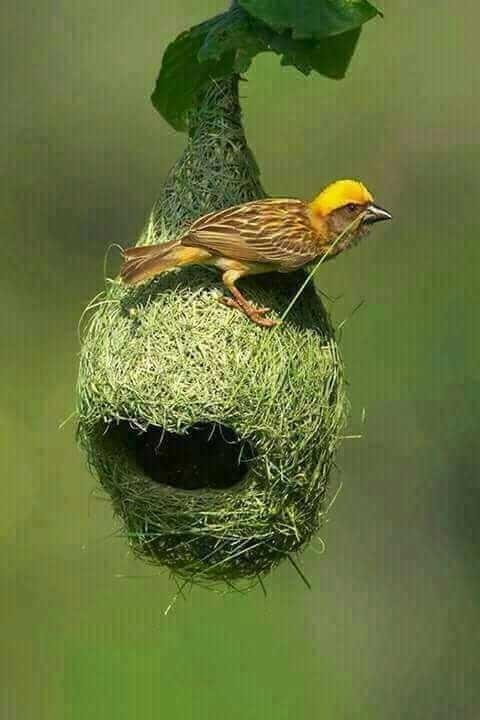
The Bird of Tempua is a bird that feeds seed seeds with a dull conifers' beak. Most male birds in this species are bright, usually red, yellow or black. The Tempua bird is known for its advantages in making large nests, woven from grass or reeds. The shape is also berbanega variety, depending on the type of bird. This tempua nest has a large structure as if made by a reliable architecture.
The tempua's nest is very unique, one of the most complicated. In English called "weaver bird" means bird weaver. Some types of nests are even equipped with "deceit doors" to fool predators. The door was visibly gaping, while the actual door was hidden. the predator who tries to enter the deceit door will find a dead end, not connected to the cavity where the egg or the bird is located. The nest for this Tempua bird differs between the males and the females. The male tempua bird's nest has a prickly spot for it to show itself, while the female quail's nest has a curved lower part for storing eggs, precisely this nest to blend romance.
When growing up, during peak times, the male bird begua build nests, made of reeds or leaves of sugar cane or other leaves long-long. Truly experts and besenilah they build a neat nest and a convincing image of protection. The females look at it casually but attentively to the males who work while assessing the work of the males, considering it and choosing In Javanese, this tempua is known by the name Mayar. These grain-eating birds, love open habitats such as rumpats, the edge of swamp forest and rice fields. The breeding season starts from April to October. Males may marry more than one female or pologami. The success of males in marrying females relies heavily on the "perfection" of the nest he built. Females who are attracted to a particular male will investigate the male nest carefully, and if the female is pleased, then marriage can occur. Because of its beauty is often a lot of bird nests are sold to buy, and the bird itself is used as a pet pets.